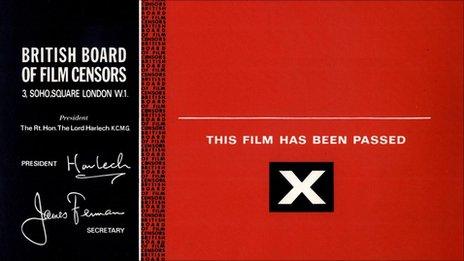Sex, violence and religion: The films banned by councils
- Published
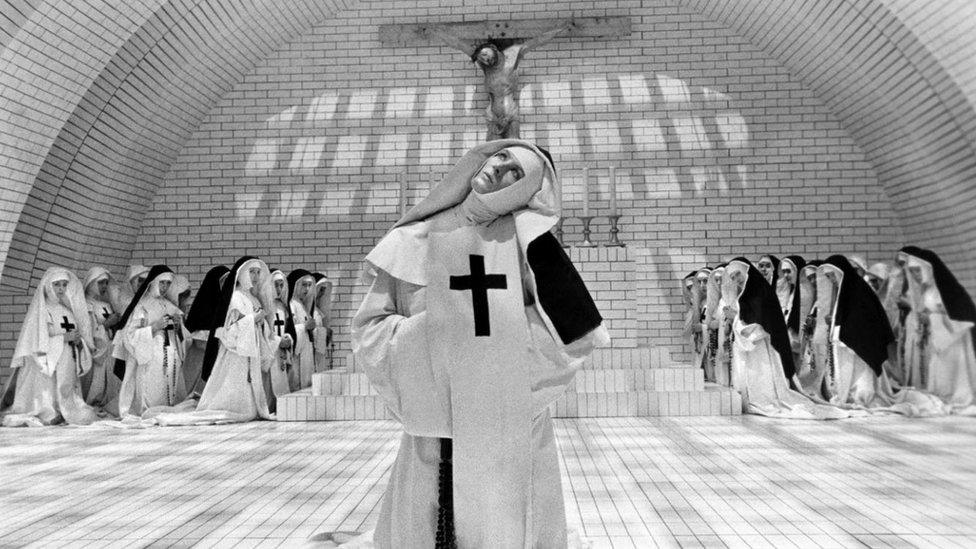
The Devils was banned by 17 local authorities because of its depiction of sex and religion
Monty Python's Life of Brian has finally had its first public screening in Bournemouth after almost 35 years of being banned in the town. But it's not the only film to suffer the shackles of local censorship.
While many councils have always accepted the ratings doled out by the British Board of Film Censors (BBFC), many more have taken it upon themselves to review films given an X-rating before giving permission for them to be shown in their towns and villages.
Historian Mike Hally, author of A Historical Account of "The Naughty Pictures Committees" in Sale and Manchester, said local authorities in the 1950s and 60s were trying to stem "the tide of filth" appearing on the silver screen.
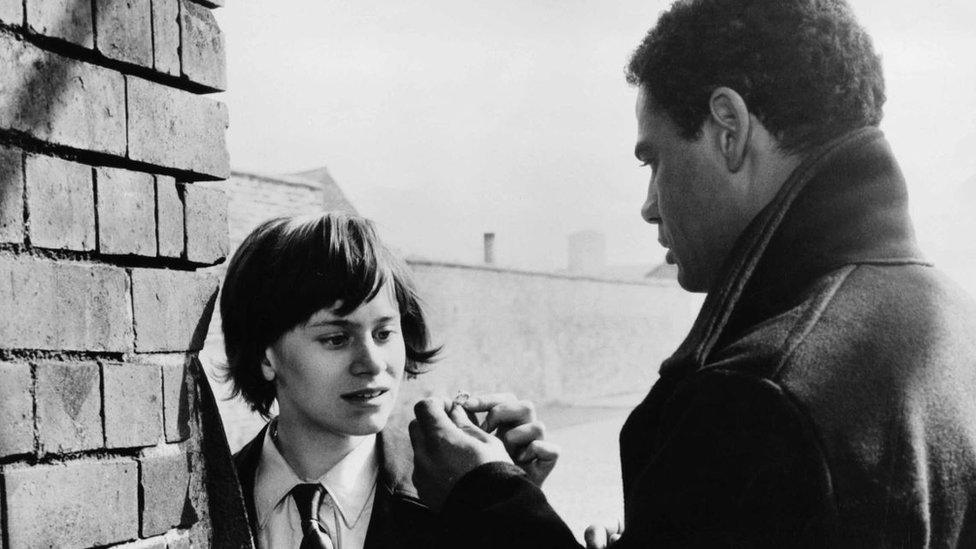
A Taste of Honey was the sort of film often banned by censors but given a green light in Sale
"A Taste of Honey was X-rated when it was released (in 1961) and it was the kind of film that would have been banned by local councils," he said.
"'Rock and roll films' like The Wild One were also banned because of the growing concern about what they were showing - unruly teens smoking, or doing drugs; the sort of teenage behaviour that was new to Britain at the time.
"It was a kind of social control."
Somewhat surprisingly - given the film's themes of teenage pregnancy, sexual orientation, class, race and gender - Sale Borough Council gave permission to show Shelagh Delaney's kitchen sink drama at the town's Odeon cinema.
But it was commonplace for councils to impose outright bans on films seen to overstep the boundaries of taste and decency.
Sian Barber, author of Censoring the 1970s: The BBFC and the Decade that Taste Forgot, said certain types of films were often in the firing line.
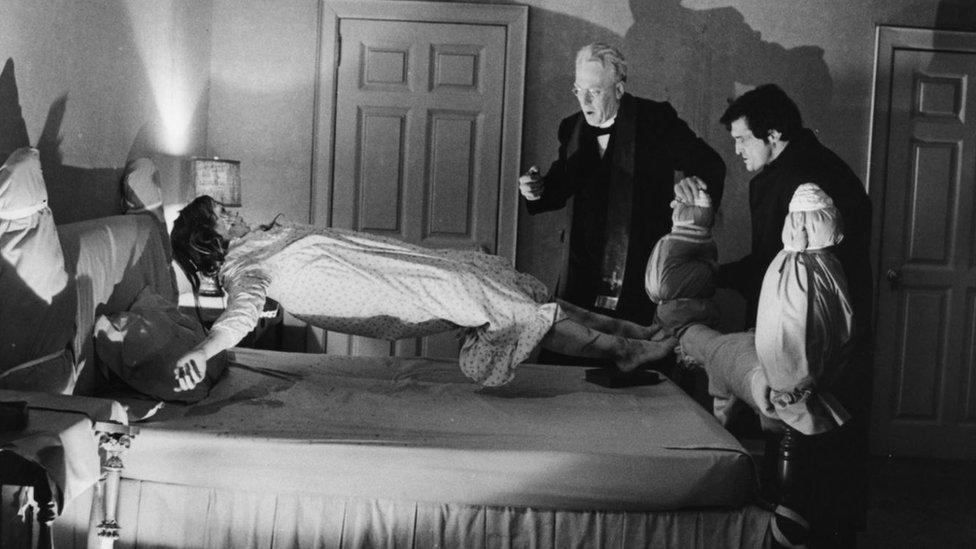
"Exorcist bus trips" were organised to take cinemagoers to towns where the film was shown
"A lot of films ran into problems in the 1970s and they were all banned for the same reasons - anything of a sexual nature or with religious motifs," she said.
"They were deemed to be excessive and super-violent and the combination of sex and violence was a very hot topic. It was a real touch paper issue for local authorities."
Ken Russell's The Devils, released in 1971, was given an X rating by the BBFC but banned on by 17 local authorities, including Surrey, Blackpool, Sevenoaks, Plymouth and Nottingham.
In Tunbridge Wells, the film was in the middle of its run when it was subject to pickets from local church bodies and, despite a petition signed by 2,500 people in support of the film, the decision was made to cease screenings.
Julian Petley, author of Witch-hunt: The Word, the Press and The Devils, said hostile press coverage of the film, which labelled it "perverted" and "sadistic", aided local censorship.
"It is impossible to escape the conclusion that certain national newspapers, and certain critics who wrote for them, were accessories to the censorship of The Devils, particularly at the local level," he said.
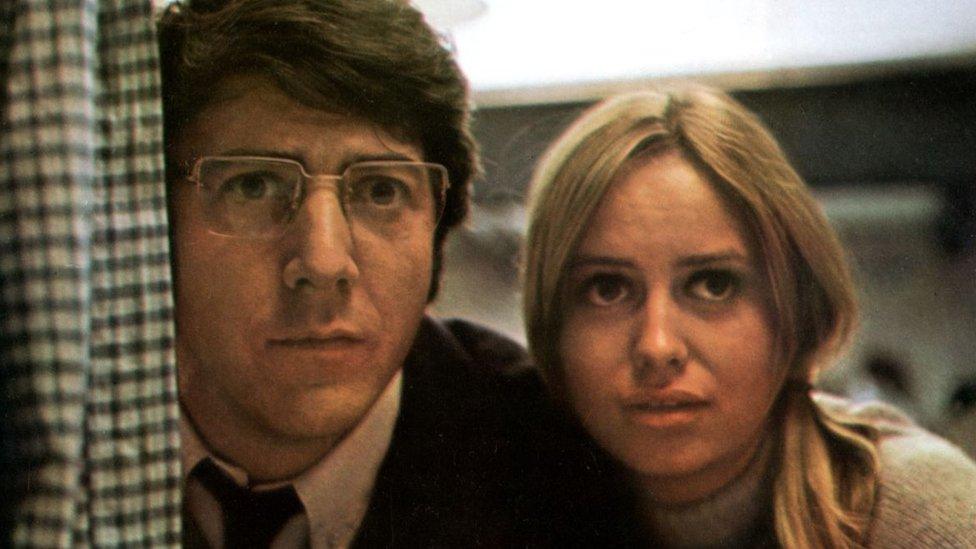
Straw Dogs joined other scary films on the list of those banned by local authorities
By the end of the decade The Devils was joined on cinema's naughty step by a slew of now famous titles, including Straw Dogs (1971), The Exorcist (1973) and Last Tango in Paris (1972), which was banned by 50 councils.
The fad for local censorship began to wane towards the end of the decade, but a number of notable films were still subject to local censorship, including Monty Python's Life of Brian, released in 1979.
"Life of Brian was interesting because it's not a horror, it's a comedy. But it was about religion and a lot of councils either didn't find it funny or didn't think it was appropriate," said Dr Barber.
"But certainly towards the end of the 1970s, there was an uproar with people saying 'how dare you make that decision for us?'"
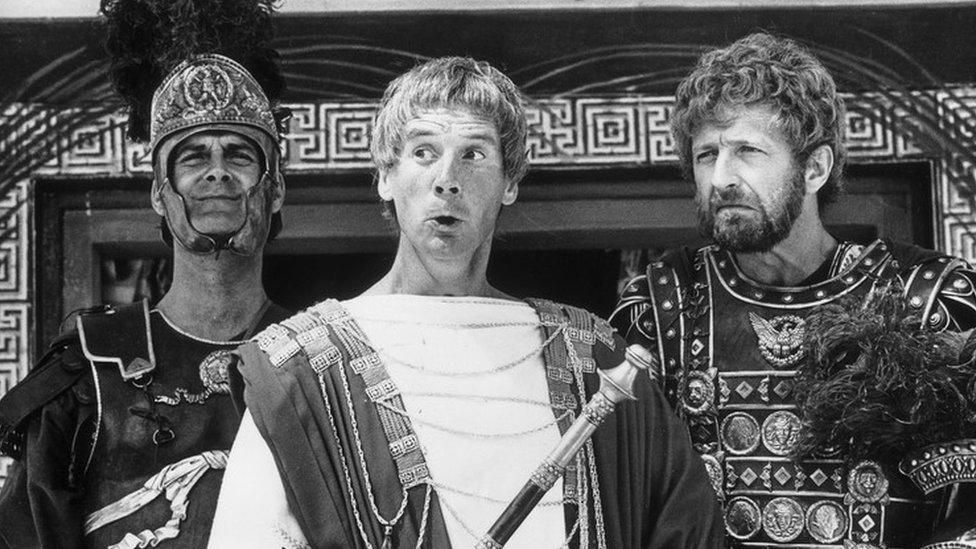
The Life of Brian has finally been shown in Bournemouth after a 35 year stand-off with censors
Religion, sex and violence continued to touch a nerve during the 1980s and 1990s, though much less frequently.
The Last Temptation of Christ caused a ruckus in 1988 for its portrayal of the messiah, while David Cronenberg's X-rated psychological thriller Crash caused a furore in 1996 over its eroticism of road accidents.
Westminster Council refused to show it at any of the borough's cinemas in light of a media onslaught that saw the film described as "beyond the bounds of depravity".
But the move was farcically undermined by the fact film fans could watch it in nearby Camden.
David Butler, film lecturer at the University of Manchester, said: "It resulted in the rather silly situation of people being able to just walk around the corner to see the film in the neighbouring council.
"Plenty of other London boroughs were fine with the movie, just not the West End."
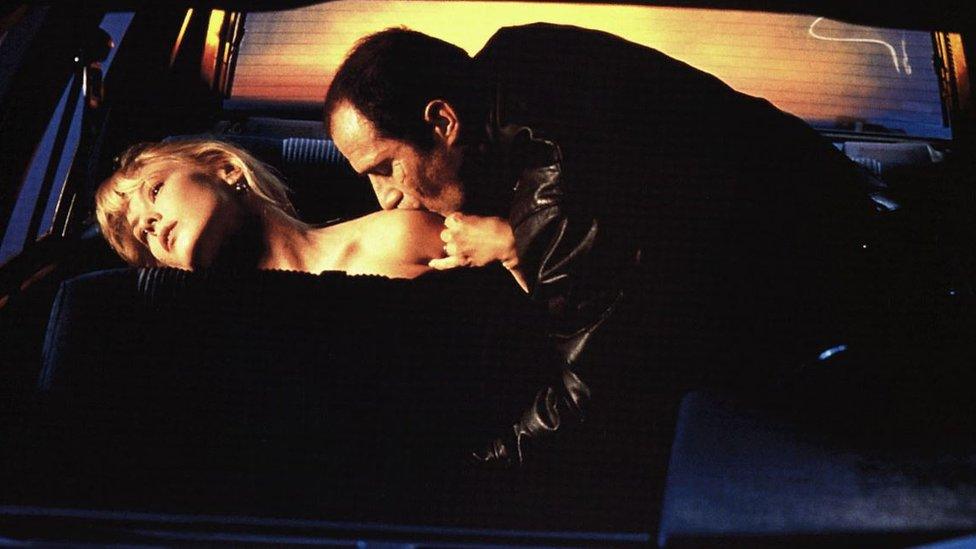
The X-rated thriller Crash shocked many local councils
Though countless councils have flexed their censorship muscle to stop films from being shown, there have been a handful of cases where they have in fact done the opposite and relaxed the rules.
Spider-Man had its 12 certificate downgraded to PG by councillors in Tameside, Great Yarmouth, Breckland and North Norfolk in 2002 amid public pressure.
But children in other areas were left disappointed when a number of authorities decided to stick to the BBFC's recommended classification, including Cambridge, Reading and Wokingham councils.
The uproar led to the BBFC revising the film's rating and introducing the 12A category, meaning under-12s could watch the film if accompanied by an adult.
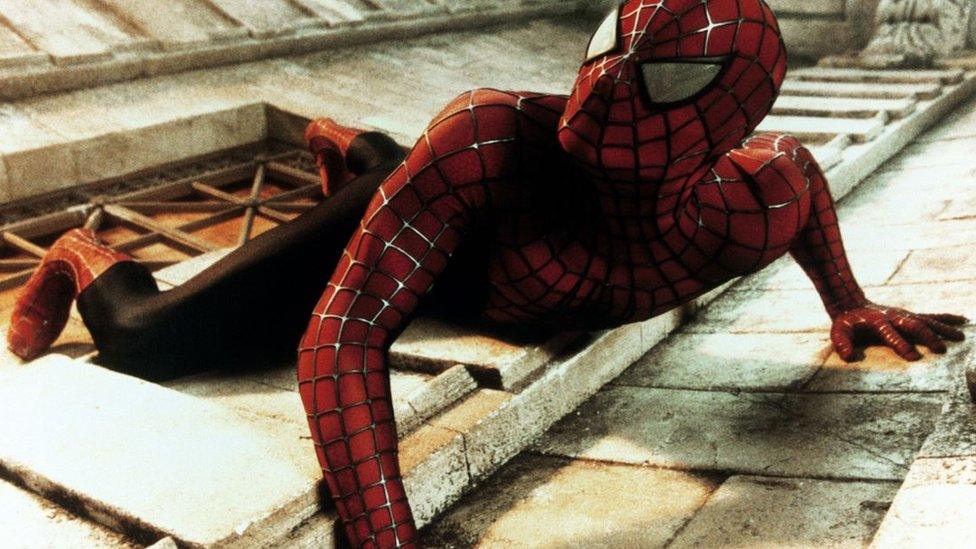
The rating for Spider-Man was relaxed by some authorities after public pressure
The potential for debate also gives hope to those films that were originally passed over not by councils, but the censor.
Lois Weber's Hypocrites was denied a rating by the BBFC in 1915 because it featured full frontal female nudity - shocking scenes for viewers a century ago.
But after 100 years of relative obscurity, the film has finally been shown in Ipswich after Suffolk Silents Society successfully lobbied the borough council for a 12A certification.
Sarah Wright, treasurer of the society, told the East Anglian Daily Times, external the decision to ban the film in the UK was "extremely ironic" because it tells the tale of people moralising about the naked female form.
"The nudity is very tame by modern standards," she added.
- Published6 November 2015
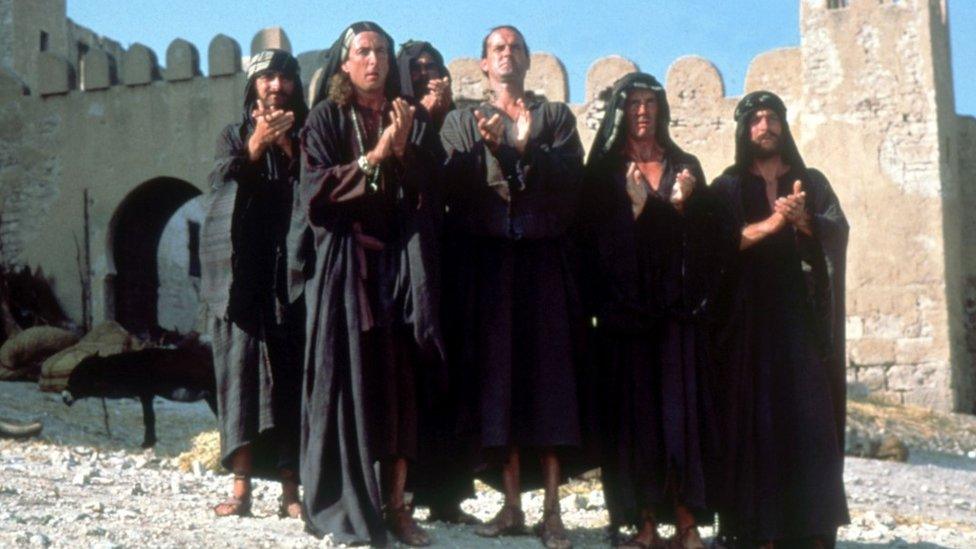
- Published15 October 2015

- Published30 September 2014
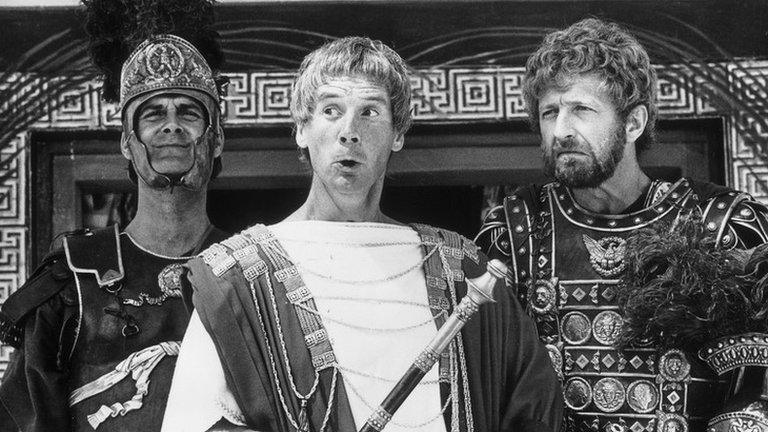
- Published29 September 2011
